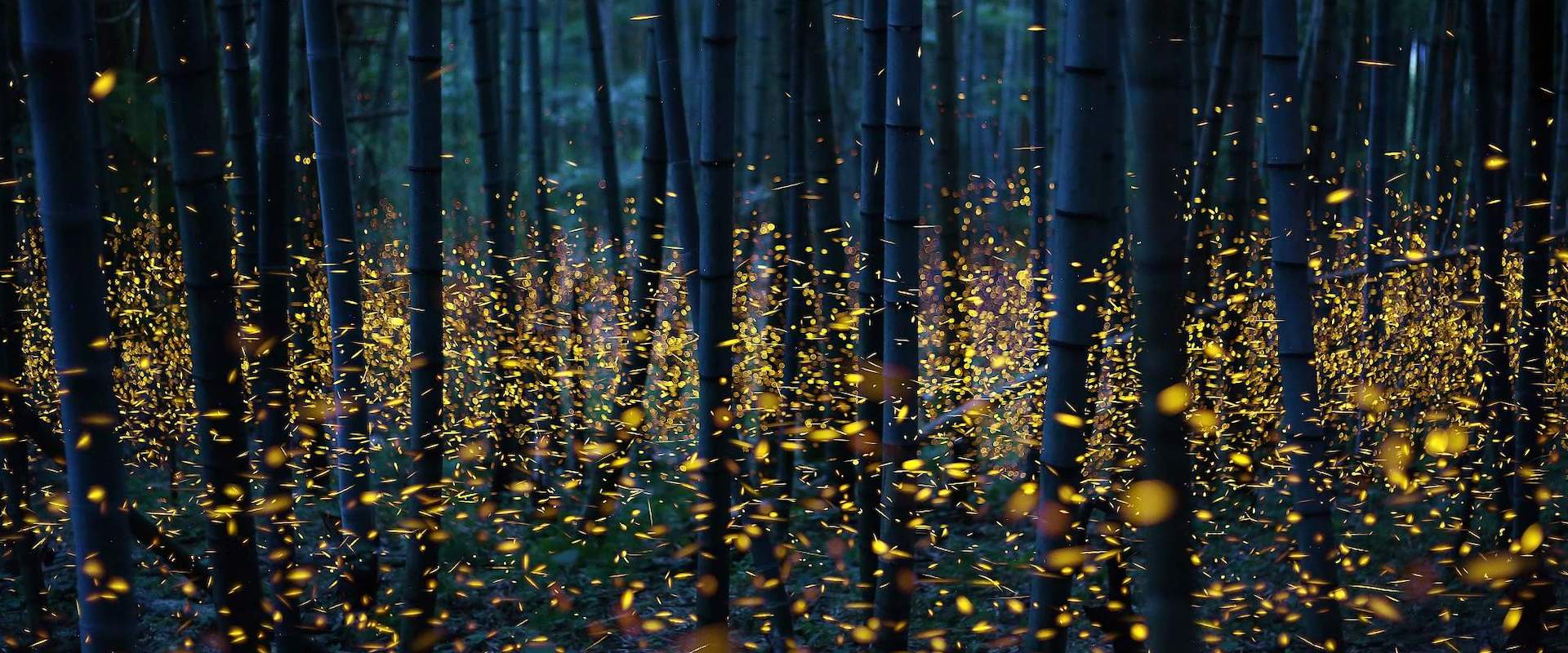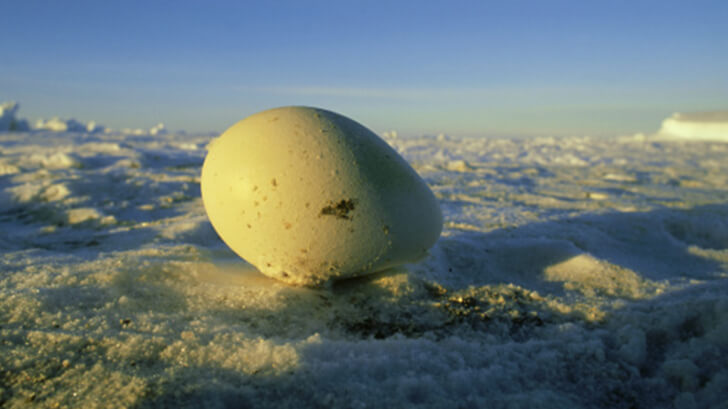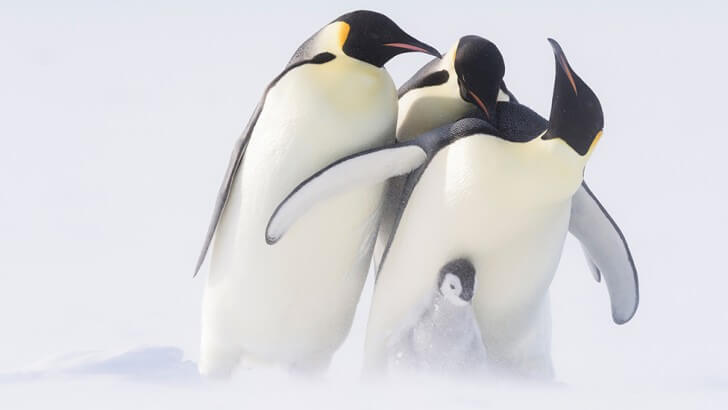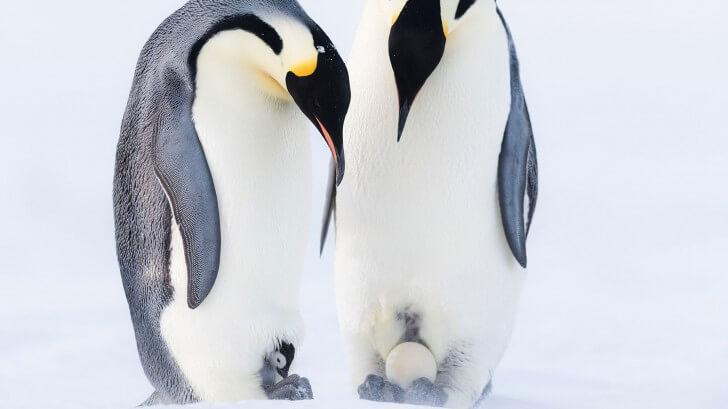

BBC Earth Podcast
Close your eyes and open your ears
Intimate stories and surprising truths about nature, science and the human experience in a podcast the size of the planet.
Dynasties
In what might be a filming-first, emperor penguins were captured caring for a snowball "egg".
While filming the latest BBC Natural History documentary, Dynasties, the crew were surprised to come across an emperor penguin who seemed to be prematurely incubating an egg, but the truth was something far more unusual.

The expecting mother wasn't caring for egg, but rather a snowball, tucked up snuggly under the penguin's warm feathers.
For episode director Will Lawson, this remarkable moment caused a moment of panic for the team.
“We thought that eggs were being laid already, well ahead of schedule. It was only when we got closer and watched, that we saw the big reveal: a snow ball instead of an egg! The main feeling was of relief: we weren’t too late onto the sea ice after all!”
“We stayed with the pair watching the intimate display in disbelief. They were acting in such a parental manor over this snow ball! Temperatures were so cold though that the ball did not seem to be melting, even against the mother's warmth, so by the time we moved on (perhaps an hour later), we left the pair to continue their parental practicing!”
Adopting a snowball might seem a curious thing to do, unless you know a little about penguin chemistry.
If chicks are abandoned, other penguins will argue over them and even kidnap them"
Dr Iain Staniland, an Antarctic Wildlife Biologist with the British Antarctic Survey, says the penguins' hormones are driving them to nurture things.
“If they found an artificial replacement for an egg, their broody nature would strongly motivate them to look after it.”
This phenomenon has been observed before, but with chicks rather than snowballs. “If chicks are abandoned, other penguins will argue over them and even kidnap them. But they rarely manage to successfully adopt them,” says Dr Staniland.
This broody behaviour is the byproduct of a hormone called prolactin. A 2006 study found that when scientists reduced prolactin levels in penguins, they were less likely to kidnap chicks. On the other hand, penguins with elevated level of prolactin were more likely to become kidnappers.

The adoptive habits of emperor penguins were the subject of a study in 1994. It found that 28.7 per cent of a colony of penguins adopted one or more chick during a breeding period. Just over half of these, 53 per cent, were due to kidnappings, with the rest being made up of chicks found wandering after being abandoned. The overall impact to the chicks was deemed to be positive, more of them were fed, but other than satisfying the parental instincts, no benefit was found to the adoptive parent.

Lindsay McCrae, director of photography, says witnessing the behaviour was a huge stroke of luck. "We hoped to see it, we certainly didn't expect to see it and we didn't see it happen again!”
Featured image by BBC NHU


Intimate stories and surprising truths about nature, science and the human experience in a podcast the size of the planet.